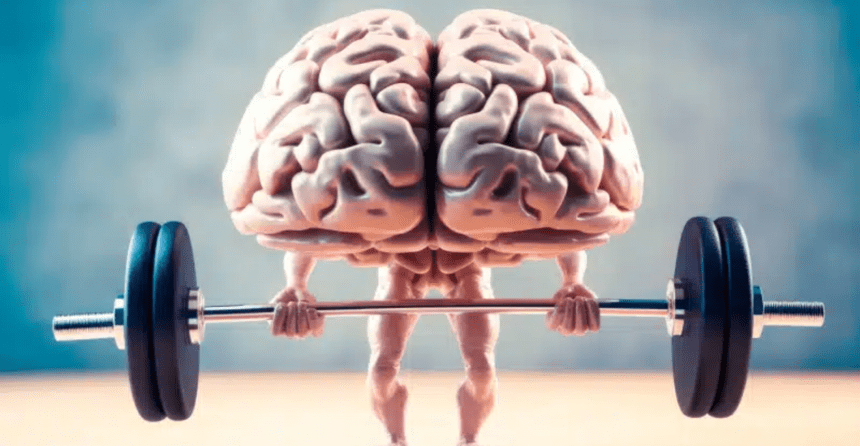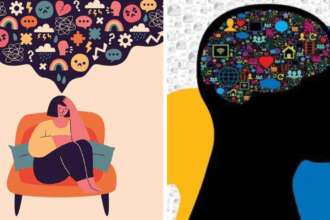A popular and disregarded opinion from medical experts and neuroscientists is that this generation is much weaker than the preceding ones. The cause of this is “screen time”.
Screen time is directly proportional to prolonged sitting and staring. Regardless of age and gender, people are obsessed with this activity. In contrast, the previous generations were more active, often moving, traveling, and working on foot in their daily lives, which contributed to their overall fitness.
Today, people are becoming inactive and gradually losing their health and strength. The best way to combat this issue is through regular Exercise.
“Screen time is slowly frying your Brain”. — Dr Wendi Suzuki, an American Neuroscientist.
Wendi promotes the idea that a big, fat, fluffy brain is your pathway to a happy life. What we need is not Einstein’s brain, but a healthy brain loaded with positive ideas and feelings. That, we cannot build by only watching motivational reels and podcasts. But, by taking Action.
“It is action that creates Motivation”. — Steve Backley, an English athlete.
Effects of Exercise on the Prefrontal Cortex and Hippocampus:
Prefrontal Cortex is thought of as the “personality center” and is the cortical region that makes us uniquely human.
Regular physical activity and meditation helps with the prefrontal cortex and improves our mood, the working of memory, mental and physical health, and essentially, making us feel and act stronger, both mentally and physically.
The Hippocampus is a site for decision-making and committing information to memory for future safety uses. Learning, for the basis, helps with the Hippocampus, thus, improving the memory.
Also Read: Free From Overthinking Trap – Steps to Start Living
Learning changes the structure of our brain:
London Street Test:
The “Knowledge of London” was initialized in 1865 as a program to test driver’s knowledge of the city, its principal streets, squares, and public buildings. The program is rooted in the idea that all London cab drivers should “know the quickest routes through London’s complicated road network” by heart.
London taxi cab drivers have to learn some 320 routes that crisscross the city. It takes them four years to study for this intense test. A neuroscience professor followed the wanna-be London taxi cab drivers during their four years of this test’s preparation.
She said they all of them had identical memories in the beginning. Half of them fail, and half of them end up being London Taxi Cab drivers. The study showed that the posterior part of the hippocampus turned significantly bigger, so the memory turned superior in those successful Cab drivers.
Factors that have an effect on Mental Health according to World Health Organization WHO:
Emotional skills:
Emotional skills refer to recognizing, expressing, or regulating our emotions. Recognition and understanding of our emotions are the foundations of self-awareness and mental health.
Substance use:
Substances like alcohol, nicotine, tobacco products, drugs and vaping or overuse of medicines that could be transferred into the body with possible dependence and other deleterious effects.
Studies have shown that the things we consume, plus the time and place we consume them in, have an unimaginably great effect on our brain’s health.
Genetics:
Common mental disorders like depression and anxiety are likely the result of a combination of genetic variation, life experiences, and environment. If your ancestors used to have severe panic attacks or anxiety, it would likely have passed into the succeeding generations.
Environments:
Our environments shape our lives. The public or private circles in which we are found is concerning. Exposure to unfavorable environments also affects our mental health.
We won’t find a determined writer sitting and chatting in a circle of junkies. If you find one, sooner you are going to call him an ex-writer and a junkie.
The environment shapes people’s actions, their values, and their sense of who they are. – Malcolm Gladwell
Risks:
Risks, especially those that occur during developmentally sensitive periods, especially early childhood, are particularly detrimental.
For example, harsh parenting and physical punishment are known to spoil child health.
Mental health Promotion:

Community-based Mental Health care and Programs:
These models could be arranged to emphasize the creation of safe and supportive living environments within the broader communities and localities. Mental health organizations and societies could collaborate to conduct these programs for a healthier environment.
Institutional-based Mental Health Welfare programs:
Institutions could arrange interactive sessions with groups of students or employees, and workers to promote their mental health.
Physical Activity Promotion:
Institutions and communities both can arrange competitions or training sessions for physical activities to emphasize the need for Exercise, including jogging, swimming, cycling, walking, gardening, and dancing to reduce depression and anxiety.
Mental health is a basic human right. It is more than the absence of mental disorders. — says WHO
Traveling:
Traveling is a great way to improve our physical and mental well-being. It’s a way to stretch our mind.
When you find and yearn for new positive environments and challenges, the past sufferings and challenges that caused us distress will soon fade away like the journey of a new moon to becoming a full one.
Like muscles, our brain changes shape based on what we do and consume.
Conclusion:
We are unfortunately a Generation of modernised culture and a backward health. And, I would say, to all my abilities, that the major cause of all our health issues would always be Screens. Technology has certainly provided a significant rise to the economy, culture, fashion and knowledge. Where anything does good to us, it is doing bad too. All of our acts are controlled by our brains. The Hippocampus and Prefrontal Cortex: We just examined how they affect our life. Studies have shown that exercise makes a significant effect on our hippocampus and Prefrontal Cortex. We all are victims of a dozen mental health issues. Analysing different aspects, all of us should be aware of the things which cause our mental health to act terribly -environments, emotional skills, substance use and misuse of screens etc – and decide for the turning point of our lives. Our action should be in favour of reducing our screen times majorly and then bit by bit, overcoming most of the underlying issues. And, our pathway to a productive and meaningful life is Exercise. Studies have shown that exercise acts like an antidepressant. It is a remarkably helpful way to tackle our mental health issues.
“If you don’t make time for exercise, you’ll probably have to make time for illness. – Robin Sharma






